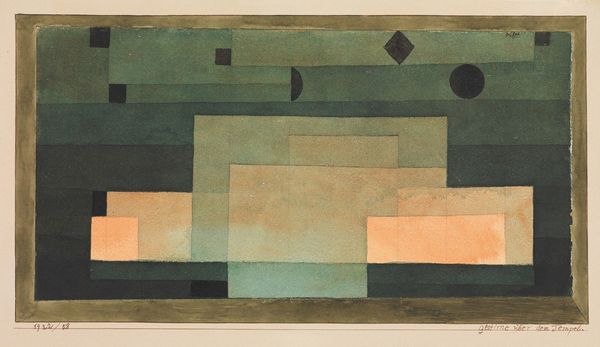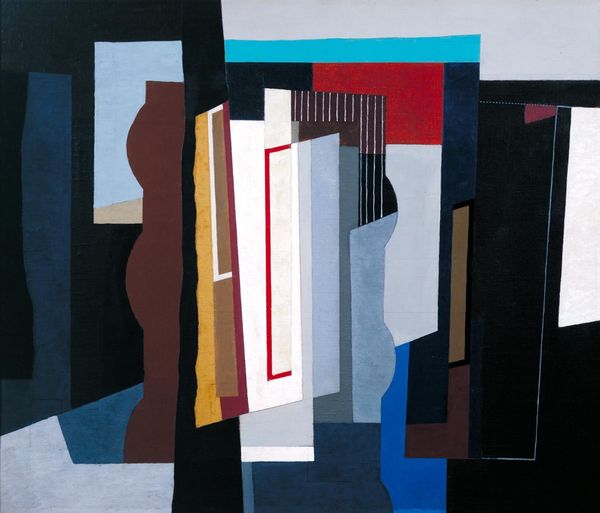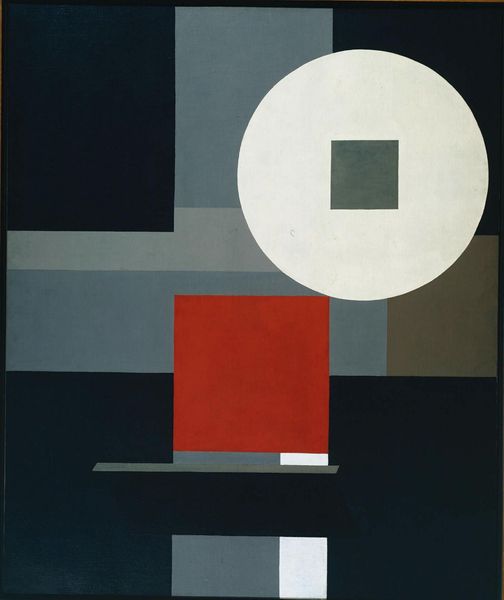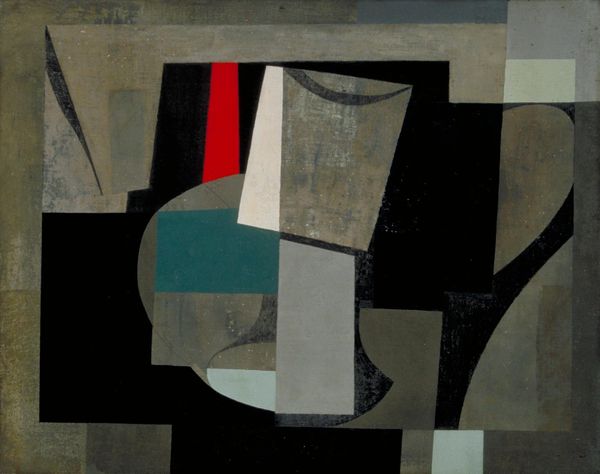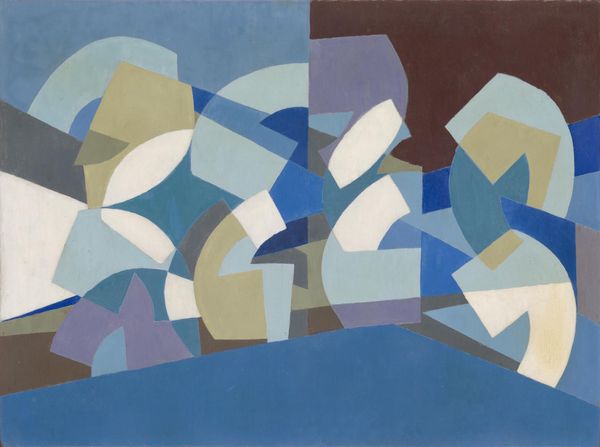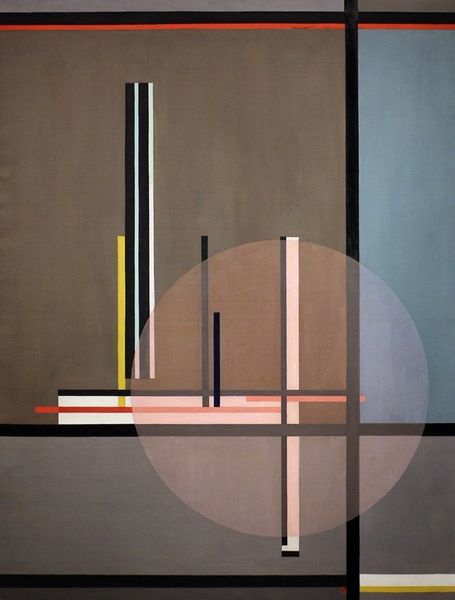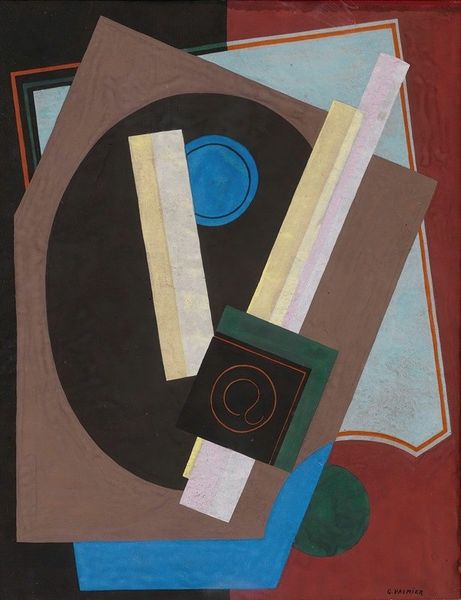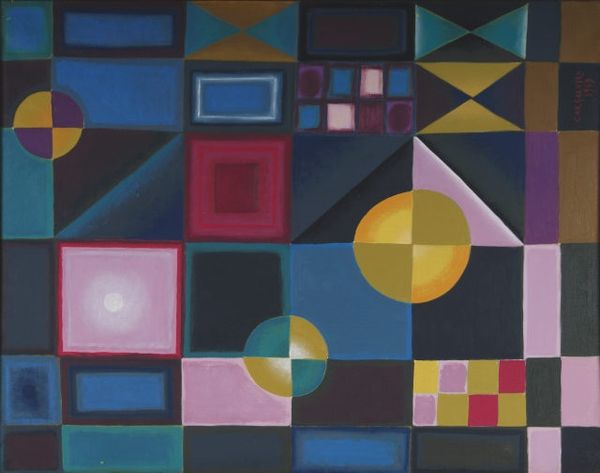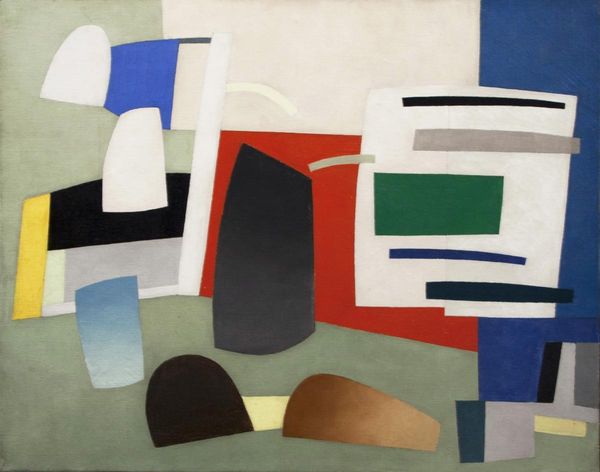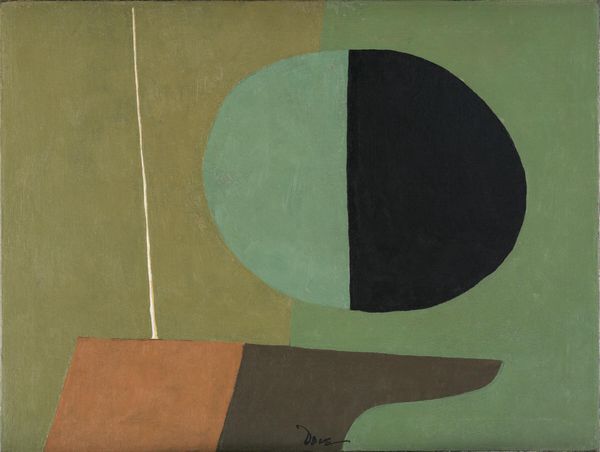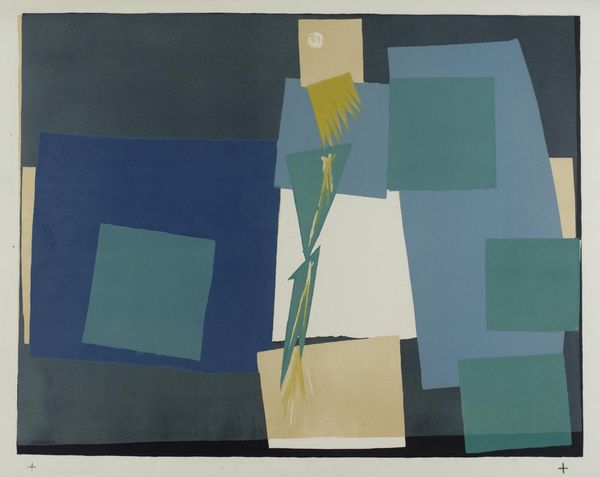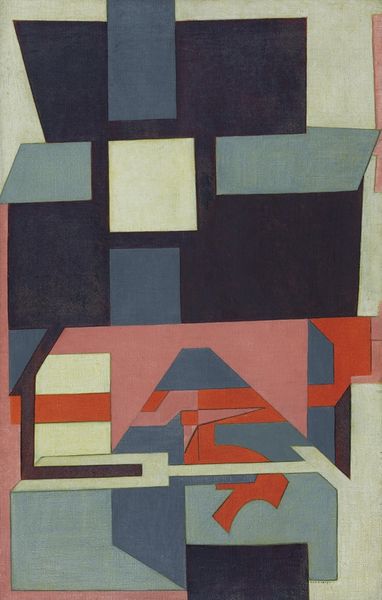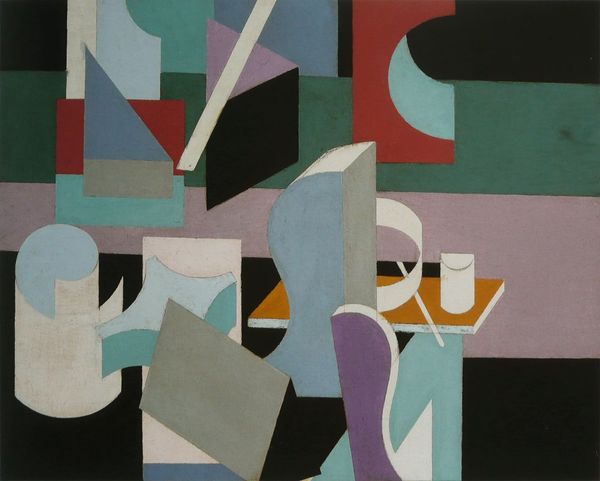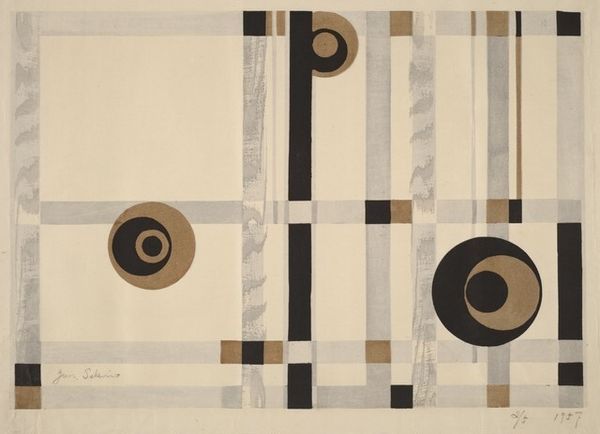
painting, oil-paint
#
de-stijl
#
cubism
#
abstract painting
#
muted colour palette
#
painting
#
oil-paint
#
form
#
geometric pattern
#
geometric
#
geometric-abstraction
#
abstraction
#
line
#
modernism
#
monochrome
Copyright: Sandor Bortnyik,Fair Use
Curator: Here we have Sándor Bortnyik's "Geometric Composition." Painted with oil on canvas, this piece immediately strikes me with its precisely arranged forms. The relationships of line, shape and colour create a really balanced visual experience. Editor: Balanced, perhaps, but also strangely unsettling. There’s a kind of tension in how these geometrical forms intersect. I am very curious how the shapes came to be. Can we discuss a little bit about Bortnyik's studio practice? Curator: Of course. Bortnyik, influenced by movements like De Stijl and Cubism, was interested in using abstraction to express utopian ideals, particularly relating to social change. He saw the process of abstraction as a way of creating art that resonated with social life. Editor: Fascinating. Because for me, looking at those circles, split colours...it feels very controlled, almost clinical. Do we know anything about Bortnyik's political inclinations at the time, and how it relates to art production during this time period? Curator: Certainly. Although labeled a "fellow traveler" due to his interest in utopian socialism, he wasn't necessarily politically vocal in a direct way. But you see hints of that aspiration towards something more balanced in how he integrates different shapes to his composition. You may not agree, but many saw his commitment to geometric form to symbolize the collective. Editor: That makes a lot of sense given his associations, though it doesn't diminish the unsettling feeling. Are you thinking of the color palettes when you mentioned De Stijl? Curator: The use of those muted colours certainly speaks to a formal language also spoken by De Stijl and Constructivism. The structure, the arrangement of rectangular forms...I wonder what was Bortnyik’s engagement with those international movements while living in Hungary? It looks like this artwork speaks that universal formal language through its geometric arrangement, line and the flatness of the medium. Editor: Thanks, these all feel relevant and helpful points, but what this abstract geometric piece is about to you on an emotional level? Curator: Well, the use of geometric form to symbolize collective goals is also to seek perfection in an artistic composition that, as we explored, may very well have some sort of relationship to social and material realities. What is important to acknowledge is Bortnyik's experiment in pushing abstraction while subtly echoing modern concerns. Editor: I still find it interesting how this striving for utopia and perfection, using shapes, resulted in a unsettling tension and a desire for deconstruction in me. Thank you for this journey.
Comments
No comments
Be the first to comment and join the conversation on the ultimate creative platform.
